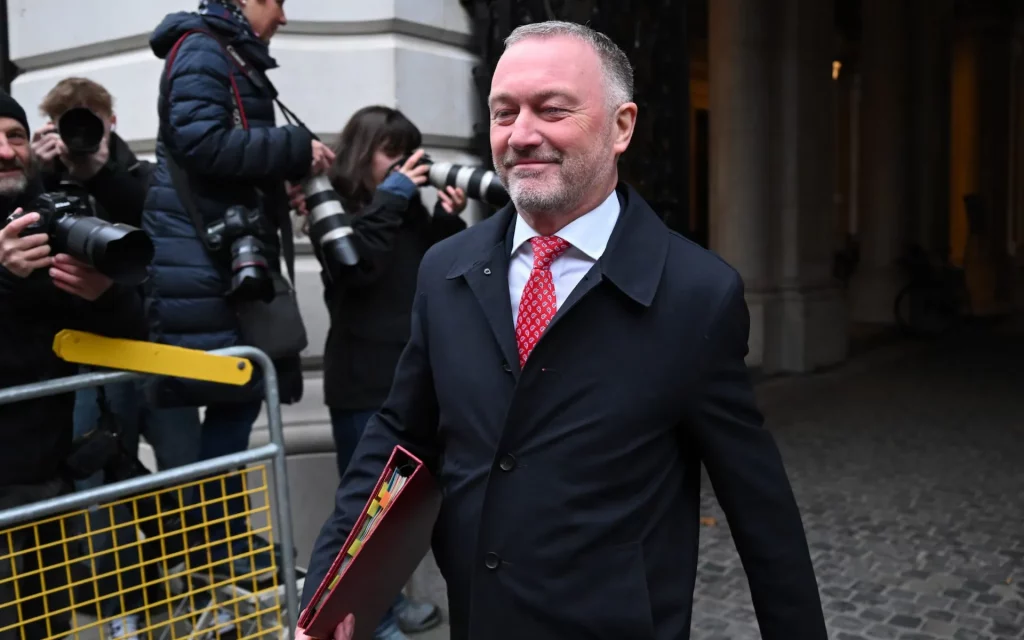The UK government is facing strong criticism after a minister suggested that British-born children with immigrant parents could be deported under the new asylum crackdown. This came after Steve Reed, the Communities and Housing Secretary, refused to rule out removing families whose asylum applications have been rejected. His comments raised major concerns about how far the government is willing to go to increase deportations under the new immigration reforms.
The new plans were revealed in a detailed 33-page policy document released by Home Secretary Shabana Mahmood. Under the changes, families whose claims have been rejected will now be offered cash incentives to return to their home countries as long as those countries are considered safe. However, if the families refuse to leave voluntarily, the Home Office will escalate their cases and move towards forced removal, even if the children were born in the UK.
Ms Mahmood argued that the previous system encouraged parents to use their children as a way to avoid deportation. She claimed there had been “hesitancy” by the Home Office to remove families, creating what she called “perverse incentives” for migrant parents. According to her statement, some parents now send their children on small boats to the UK in hopes that having a child born in the country would help them avoid removal.
During an interview on BBC’s Today programme, Steve Reed avoided giving a clear answer when asked whether British-born children could be deported along with their parents. He mentioned that more than 700 Albanian families in the UK had already been refused asylum but were still living in the country because they had children with them. He argued that situations like this encourage more parents to put their children at risk by sending them on dangerous journeys.
When asked again, Mr Reed did not directly address the ethical concerns raised by the interviewer, who noted that the policy creates serious practical problems for families who have children while living in the UK. Instead, Mr Reed repeated that each case must be considered individually and that the government cannot allow a system that encourages dangerous travel by families hoping to stay in the country.
The government is planning to rewrite existing rules that previously allowed failed asylum families to keep receiving financial support until their children turned 18. Under the new approach, Ms Mahmood said she will begin the removal of families to safe countries. Officials also revealed that the UK is already exploring the return of failed Syrian asylum seekers after political changes in Syria.
Another part of the reform includes a trial offering even larger financial incentives to rejected asylum seekers who choose to return home voluntarily. These payments will be higher than the current £3,000 offered to those who agree to leave. However, the proposals have received backlash even within the government. More than two dozen MPs, including senior figures such as Sarah Owen, described the plans as “repugnant.”
The reform package contains almost 40 new measures, including proposals to allow the government to seize valuable assets belonging to illegal migrants to help pay for their housing costs. After public pressure, the Home Office clarified that sentimental jewellery will not be taken away. The overall reforms are being described as the biggest changes to the asylum system since the Second World War and are aimed at increasing deportations and reducing what ministers call “pull factors” that make the UK a top choice for migrants.
The new measures also include ending the automatic right for refugees to stay in the UK permanently. Instead, even those allowed to remain will have to wait 20 years before applying for permanent settlement. Prominent politician Nigel Farage said the plan looked similar to what his Reform UK party would propose, but Ms Mahmood strongly dismissed him, telling Sky News she had no interest in his views and accused him of trying to cause trouble.
As she presented the plans in the House of Commons, Ms Mahmood also hit back at critics from the liberal wing of politics, saying she understood how heated the debate on migration is and sharing that she has personally been subjected to racist abuse. The new policy continues to generate intense national debate, especially on the issue of whether British-born children could legally and ethically be deported under the expanded rules.

